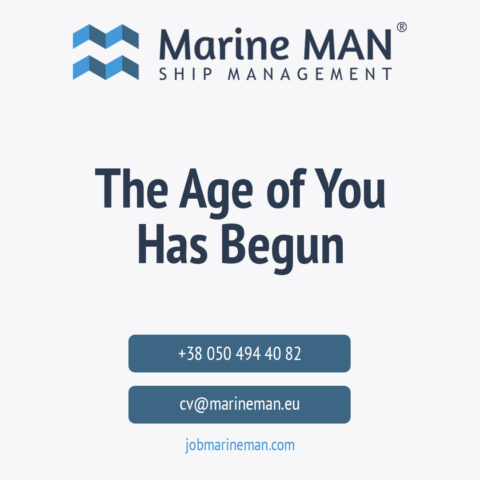First job at sea
 Automatic translation
Automatic translation
The career of a sailor attracts many - both young people and residents of coastal cities who know firsthand about the amounts paid for a voyage. The sailors return from sailing with a salary that looks attractive by European standards (not to mention Ukraine), during the term of the contract they visit several foreign countries, see the shores of exotic countries. And it's simple - there is always the sea around them, and we look at the seas and oceans through the eyes of romantics. The difficulty is that good earnings and interesting trips are attributes of experienced sailors, and experience is needed to qualify for a good place. What if you don't have experience yet?
Non-marine professions - marine work
The work on the ship is much harder than it seems from the stories of friends, so it would be a good idea to "try it out" and decide whether to build a career in this direction. For example, you can search for a job that is not directly related to shipping. Work on a cruise ship is available to people without a specialized education, and during the voyage you will get a good idea of what it is - several months on the water in one team. It will be quite good to make money. For the duration of the cruise, the liners need cooks, waiters, hairdressers, masseurs, animators for working with children, photographers and guides. If you have experience in any of these professions and good English, feel free to send your resume to the agency. Knowledge of other foreign languages will increase your chances of getting a job on a ship without experience. It is also worth taking care of visas in advance, checking what documents may be required and preparing them as much as possible.
The beginning of a maritime career
Well, what if at home there is a fresh red diploma from a naval school or a certificate of just completed courses? Then you need to contact crewing agencies, be ready to go to sea as soon as they call, and not expect too much from the first contract. Newcomers are not hired as officers, no matter how good their knowledge is. Be prepared for the first flight to be difficult, the payment is not as high as older comrades and friends of your parents said, and you will not have to rest at all. During the time spent on the ship, you will make acquaintances that will help you in your future career, and if you are in good standing, you will quickly get the next contract. You can increase your chances of getting a contract in a few simple steps. The first is learning English. In any case, you will be required to confirm the level of proficiency in a foreign language, because a team from all over the world may well gather on the ship. Secondly, constantly improve your professional level. Training diplomas will not open the door for you to the bridge, but they will make you a more attractive team candidate for many recruiters. And, finally, thirdly: try to prepare in advance all the documents for sending on the flight, which you can. Hot vacancies often go to those who are actually ready to fly to the place of departure tomorrow.
Several important nots
There are things that you should never do when looking for employment on a ship. You will lose time, money and, in case of some mistakes, the very possibility of working at sea. Here are some of these guidelines:
- Do not be fooled by offers to “buy nautical miles” and do not try to falsify your data in any other way. It's the XXI century, your certificates, characteristics and everything that you report in your CV is checked in minutes. The crooks are blacklisted and remain on the shore with a "wolf ticket".
- Do not agree to offers from unknown people on the forums to help in employment for money. Most likely, these are scammers. Even worse, if for your money they arrange you on a blacklisted ship owner's flight - there you can even lose your health. Or freedom.
- Don't neglect job offers from reputable agencies, even if it's not your dream job.
- Don't be lazy to google. Check the reputation of intermediaries, employers, read about the intricacies of drawing up a CV and the specifics of the law of the sea. If in doubt, consult a lawyer.
